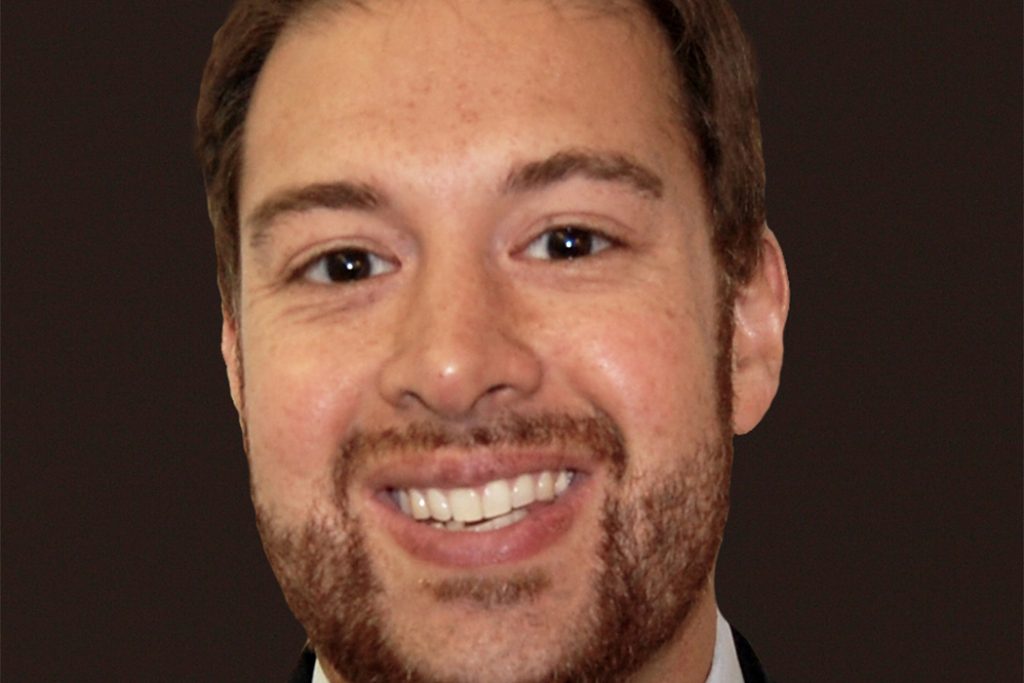During a community address at BC Law School on March 15, visiting Rappaport Senior Fellow Ajmel Quereshi took apart a prevailing narrative about police misconduct and sought to reconstruct it in a more multidimensional way.
Quereshi, who is senior counsel at NAACP Legal Defense and Educational Fund (LDF), was introduced by second-year student Vannessa Lawrence, former Rappaport Fellow and co-chair of the BC Black Law Students Association, who set the stage for his remarks. “Oftentimes we have an essentializing narrative in which all communities share the exact same goal,” she said, when, in reality, to be responsive to our communities and to hold a damning institution accountable, we must approach the problem from all sides.
In response, Quereshi set forth first principles that ask, what are we trying to accomplish and what do we generally agree about?
The first principle, he said, is that people should be safe inside and outside their homes from any sort of violence.
The second is that all or most of us recognize that there is some degree of unnecessary police violence, whether in homes or in the public, and that unnecessary violence is bad for everyone. “It’s bad legally, it’s bad morally, and it makes all of us less safe,” he said. “It’s obviously harmful for the people affected, but it also creates a general sense of distrust between the public and state actors, whether police or otherwise.”
The third—and one on which Quereshi said we can all generally agree—is that some police officers act based on discriminatory intent. To make his point, he quoted former Maryland State Police Lieutenant Ernest Leatherbury Jr., who has reasoned that stopping blacks at a disproportionate rate is an “unfortunate byproduct of sound policing,” not of racism.
Acknowledging the history and role of racism in America, Quereshi also expanded the context to other social factors to explain police violence. Problematic policies that police are called upon to enforce are one issue. Another is social constructs, such as segregation and poverty, within which police function.
He asked: How can we rethink the role of police in those areas?
One place to start is bias training, which up to now has often failed, Quereshi said, referring to Lorenzo Boyd, director of the Center for Advanced Policing at the University of New Haven. Boyd has observed that “implicit bias training is not top of mind when officers respond to alleged threats because their reactions stem from what’s called ‘warrior training.’”
Still, when done properly, it can make a difference, Quereshi argued. The two pillars of successful bias training are rigorous evaluation of the training—measurement of the actions of officers before and after their training—and examination of the policy, procedures, and enforcement practices in place.
“Bias often occurs when policies and procedures give too much discretion to the individual who is called on to act. You have to review policies and procedures to make sure that they provide enough guidance—direct guidance—to individuals,” Quereshi said.
“The alternative is to support a reimagination of public safety that drastically reduces the presence of and need for armed law enforcement,” he added. A reimagination of this kind could include tightening the scope of instances in which police are responsible for responding, as well as reallocating certain resources to build up the communities most susceptible to interactions with law enforcement.
While the need to properly address police misconduct has existed for a long time, Quereshi expressed optimism that change is possible, in part because of social media. The increasing and widespread exposure to traumatic footage of police brutality through such channels is giving calls for reform more traction.
“What brings me hope is that a lot of new people who weren’t attuned to this issue are attuned to it now because of social media. I think the key is that we actually have to build upon that new engagement and actually transform it into policy change,” said Quereshi.
Quereshi’s talk, “Defunding vs. Reforming the Police: Varying Approaches to Addressing Police Misconduct in the 21st Century,” was one of several presentations during his fellowship at the Rappaport Center for Law and Public Policy.


